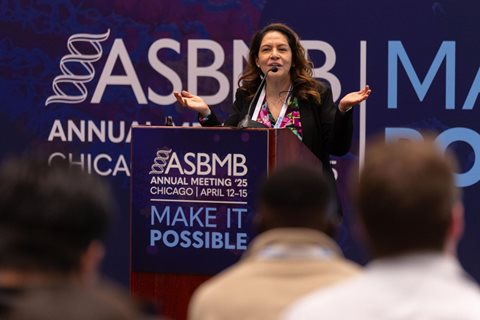Research administration: A career path uniquely fitted for Ph.D.s
As I was finishing graduate school, I became overwhelmed by the seemingly never-ending nature of research, so I decided that I didn’t want to continue to work in a lab. Instead, I wanted to use my scientific knowledge to help manage the research being done by others. That career field is called research administration. After nearly 15 years in the field, I have determined that it’s a perfect fit for Ph.D.s. who want to keep up with advances in science while moving the scientific enterprise forward through administration.

What is research administration, you ask? Great question. I didn’t know about this field as a graduate student and postdoc, so don’t stress if you are in the same boat. Big picture: Research administrators are liaisons among researchers, funding agencies, institutional leadership and external partners to ensure the smooth operation of the research enterprise.
Research administration careers are found in every facet of research. The job areas include:
- Grant development or management: Individuals in this area may identify funding opportunities, develop grant proposals, manage grant budgets or help researchers submit grants to funding agencies.
- Research compliance: Compliance officers work to ensure that research projects follow ethical standards, regulatory requirements and institutional policies. They help researchers gain approval for research involving human or animal subjects, and they then monitor that research.
- Research operations management: These individuals oversee and facilitate the day-to-day operations of research, especially at the level of departments or centers. Job functions may include managing and allocating resources, managing staff or addressing logistical issues.
- Technology transfer: These specialists help to commercialize research discoveries. This can include managing intellectual property, negotiating licensing agreements and facilitating collaborations with external entities.
This is not an exhaustive list, but I hope it gives you a general understanding of the research administration field. One important point is that individuals can move between research administration areas fairly easily. For example, I have worked in grant development/management and research operations over the years. To learn more about these types of jobs, I suggest you conduct some informational interviews with Ph.D.-level research administrators.
You can also check out organizations such as the National Council of University Research Administrators and the Society of Research Administrators International. They provide many educational opportunities to learn more about the field and invaluable opportunities to network with research administrators from around the world.
A terminal degree is not required and perhaps not even preferred for these types of jobs — so why are Ph.D.s the perfect fit for research administration jobs? Another great question. Ph.D.s bring unique and valuable skills to the table. They understand how research is done, can speak and understand the scientific language, understand research ethics and integrity, and have high-level problem-solving and critical-thinking skills. Coming into the field with these skills sets Ph.D.s apart from those who have not been graduate students in a lab.
In summary, many research administration jobs exist that uniquely match the skills possessed by Ph.D.s. So, if you are passionate about both science and administration, research administration may offer a dynamic and rewarding career path for you.
Enjoy reading ASBMB Today?
Become a member to receive the print edition four times a year and the digital edition monthly.
Learn moreFeatured jobs
from the ASBMB career center
Get the latest from ASBMB Today
Enter your email address, and we’ll send you a weekly email with recent articles, interviews and more.
Latest in Careers
Careers highlights or most popular articles

Building the blueprint to block HIV
Wesley Sundquist will present his work on the HIV capsid and revolutionary drug, Lenacapavir, at the ASBMB Annual Meeting, March 7–10, in Maryland.

Upcoming opportunities
Present your research alongside other outstanding scientists. The #ASBMB26 late-breaking abstract deadline is Jan. 15.

Upcoming opportunities
Present your research alongside other outstanding scientists. The #ASBMB26 late-breaking abstract deadline is Jan. 15.

Designing life’s building blocks with AI
Tanja Kortemme, a professor at the University of California, San Francisco, will discuss her research using computational biology to engineer proteins at the 2026 ASBMB Annual Meeting.

Upcoming opportunities
#ASBMB26 late-breaking abstract submission opens on December 8. Register by Jan. 15 to get the early rate on our Annual Meeting.

Make your abstract stand out
Ensure your research is impossible to overlook. Get quick, practical reminders for crafting an abstract that attracts readers and helps you build connections at the conference.

